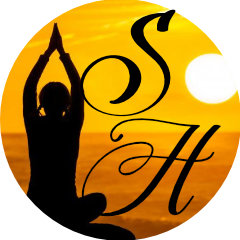Maintaining a Positive Attitude in Life
A positive attitude in life helps people keep moving forward, fulfilling their potential rather than giving up when things get difficult.
A positive attitude is a major asset in life, particularly when difficulties arise, setbacks occur, or tragedies strike. For the benefit of the individual, family, community, and often, an organization, productive life must go on. Both for the common good and for an individual’s well being, keeping a positive outlook helps with the process of moving on, overcoming challenges, and continuing growth and development. Sometimes the development of a positive attitude requires changing the way one thinks and how one reacts to other people or to adverse situations.

Positive Thinking Can Be Beneficial
For more than 100 years entrepreneurs, salespeople, self-help gurus/authors, and spiritual advisors have championed the power of positive attitudes and positive thinking. With only a few notable exceptions, however, scientists including academic psychologists have neglected these “street smart” beliefs and regarded their assertion as unscientific.
This situation has changed in recent decades as some psychologists have focused on the prevention of mental illnesses such as depression and they and others have found positive thinking and positive emotions worthy of scientific study. Serious and abundant research into many related issues has occurred in what is now known as the “positive psychology” movement.
Research has been confirming the roles that positive thinking and positive emotions play in helping people lead productive and satisfying lives, and this is a major focus of the new “positive psychology.” Positive emotions and positive personal or character traits are being extensively studied and the evidence is that a positive or optimistic outlook is most advantageous for individuals who are dealing with stress and some illnesses. In addition, optimism tends to help people to persevere more and to be more successful in general.
Positive Personal Traits Produce Positive Experiences
Prevention researchers have observed that some human strengths, or virtues, can help people avoid mental illness and addictions and live happier lives. These positive traits include:
 Courage;
Courage;- Future mindedness;
- Interpersonal skill;
- Optimism;
- Faith;
- Hope;
- Honesty;
- Perseverance; and
- Work ethic.
People who possess such strengths tend to be more successful and happier in life. So cultivating these virtues can help a person develop a positive attitude and success. A major challenge, as well as an opportunity, exists in learning how to best inculcate these important and functional virtues in the young.
Resilience and Positive Emotions as Success Factors in Life
It’s been known that some people are “resilient”; that is, they “bounce back” well from negative emotional experiences. Research has shown that resilient individuals actually employ positive emotions to help them cope with negative experiences. Evidence reveals that resilient individuals approach life in ways that are:
- Optimistic;
- Zestful;
- Energetic;
- Curious; and
- Open to new experiences.
Resilient people also display “high positive emotionality” and actively cultivate it through the use of humor and relaxation techniques as well as optimistic (positive) thinking. Under stress, the use of positive emotions can lead to creative thinking and behavior that help people cope better and solve problems better, too, that might be the case for most individuals. It is suggested that resilient (and positive) people may be aware of the benefits that positive emotions have in regulating and responding to negative emotional experiences and so resort to them often.
Employee Positive Attitudes Help Organizations
Along with the explosion of research in the area of positive psychology, organizational psychologists have recently investigated whether positive employees can help with positive organizational change. Employee resistance to organizational change is well documented. It has now been found that employees with positive attitudes (“employee positivity”) do indeed help organizations implement positive change, largely through their use of positive emotions and resilience.
Although the idea that positive attitudes can enable people to conquer the world and overcome terminal illnesses goes too far, the merits of positivity have been confirmed. What company leaders, sales executives, entrepreneurs, self-help authors, and humanistic psychologists have been espousing for generations appears to be mainly true: positive attitudes and thinking lead to more success, both in business and in life.

A Positive Attitude is Worth Pursuing
Although cynical perceptions of the behavior and motives of others can often be accurate, it doesn’t do one much good. The individual can only control his attitudes, behavior, and reactions to adverse events; for this reason and because it leads to more success, fostering positive thinking and positive emotions both in one’s self and in one’s family is worth the effort. Building personal strengths and virtues, while maintaining a positive attitude will increase an individual’s chances of leading a happy life.
Related articles that might help people develop strengths and maintain positive attitudes include two on personal development:
…


 We received an advance copy of the book “Messages from Water”, from Dr. Masaru Emoto. This book contains interesting photographs of ice crystals that are shaped by music, prayer, and words. Dr. Emoto’s message seemed fascinating, the crystal structure of water can be altered by the human intention, meaning that love is creating beautiful crystals, and hate is creating ugly crystals.
We received an advance copy of the book “Messages from Water”, from Dr. Masaru Emoto. This book contains interesting photographs of ice crystals that are shaped by music, prayer, and words. Dr. Emoto’s message seemed fascinating, the crystal structure of water can be altered by the human intention, meaning that love is creating beautiful crystals, and hate is creating ugly crystals.

 Cook’s House is a new cookbook, by the chefs Jennifer Blakeslee and Eric Patterson. This book is offering a vast selection of recipes and menus that are completely from nature, offering rich spiritual life, with the purpose of nourishing the body and the soul. Patterson and Blakeslee are partners in a small bistro in northern Michigan. They are believing that the preparation of the food must have seasonal variety and ripeness.
Cook’s House is a new cookbook, by the chefs Jennifer Blakeslee and Eric Patterson. This book is offering a vast selection of recipes and menus that are completely from nature, offering rich spiritual life, with the purpose of nourishing the body and the soul. Patterson and Blakeslee are partners in a small bistro in northern Michigan. They are believing that the preparation of the food must have seasonal variety and ripeness.